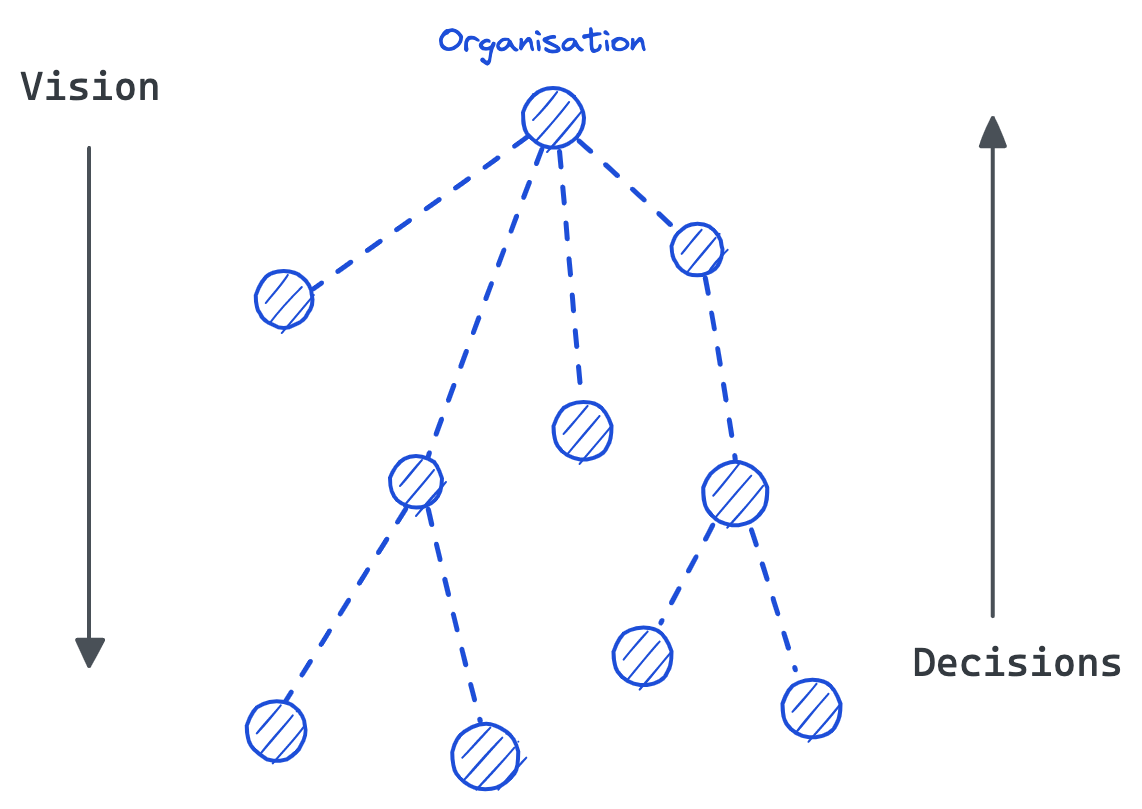Vision and decisions 👀
Leading a team without knowing all the answers
One of my main observations from working in engineering is that there are very few universally good decisions. A choice which has worked well for me in a particular scenario isn't necessarily great advice for others facing their own challenges, and with their own skillsets.
Though this observation applies to engineering, I think it extends to a wide set of problem domains. It strikes me in any situation where we want to solve hard problems, requiring detailed knowledge and skillsets. When solving these problems, the devil is often in the detail. Specific complexities shouldn't always be quickly dismissed and we should make sure to listen to the people who most deeply understand them.
Based on these observations, a natural follow-up question is...
How is it possible to lead a team, when it's so difficult to answer the questions they face?
In organisations
There's an analagous problem to be faced at an organisational level. Organisations need their people to do work. Fundamentally the challenge is to identify what work those people should do in order to achieve the organisation's goals.
For practical reasons, it's not possible for this to be solely bottom-up activity. If we ask 100 people what they should do, we'll get 101 different answers. Really we need everyone to be working in careful coordination, and for that reason it's important that some appropriate guidance should flow down from the top.
But here it's easy to fall into issue I described above: interesting problems involve a lot of necessary complexity, which only the people working on them deeply understand.
Passing down a vision
Consequently, I think that in organisations we should aim to pass down a 'vision' of where we want to go, not a set of instructions for what to do. I consider a vision to be a description of the change that we expect to see based on our work.

By passing down a vision, we can begin to let specific decisions be made by the subject matter experts who are closest to their complexities.
This picture of an organisation can be helpful for encouraging a certain set of behaviours in it's leaders:
- Clearly articulate a vision - most obviously, a leader should evangalize the direction the organisation wants to go. There are so many subtleties and pitfalls to doing this well that it feels almost trivialising to write this as a single bullet point; the scope goes way beyond this blog post.
- Focus on behaviours, not solutions - in organisations, we tend to spend a lot of time discussing concretely what we've done, but this lacks a universal application to the rest of the organisation. In the engineering domain this looks like a presentation about a new tech tool, when perhaps we'd be better served talking about the process by which we understood the needs of our dependents. Overall, I think this point is a variant of the idea that 'culture beats process': we should focus so much more on how we solve problems that just a narrative of what we've done.
- Display judiciousness - in an organisation where decisions are flowing up there is a lot of responsibility on leaders to assess which decisions will best enact the overarching vision; and to prioritise accordingly. I think this is where we start to see the benefit of experience: I may not know the answer to your question a priori, but with your expert guidance, I can help you get things done.
My take-away is that we should focus on being good at solving problems, not at answering questions.